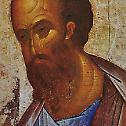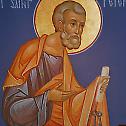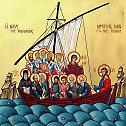Science
Opposing Racism: Commending our Life to Christ
23. August 2017 - 8:46“Happy is he whose help is the God of Jacob, whose hope is in the LORD his God, who made heaven and earth, the sea, and all that is in them; who keeps faith for ever; who executes justice for the oppressed; who gives food to the hungry. The LORD sets the prisoners free; the LORD opens the eyes of the blind. The LORD lifts up those who are bowed down; the LORD loves the righteous. The LORD watches over the sojourners, he upholds the widow and the fatherless; but the way of the wicked he brings to ruin. The LORD will reign for ever, thy God, O Zion, to all generations. Praise the LORD!” (Psalm 146:5-10)
In many Orthodox churches, it is customary to sing the above Psalm 146 at the Eucharistic Liturgy. The Psalm expresses an ideal for the life of the people of God and how we are to be godlike, and to act toward the stranger, the sojourner and the oppressed with the same intention as God Himself: executing justice for them all. In fact, we are to treat them as we would wish to be treated (Matthew 7:12).
On the Dormition Fast, and the Cross of Christ
18. August 2017 - 12:04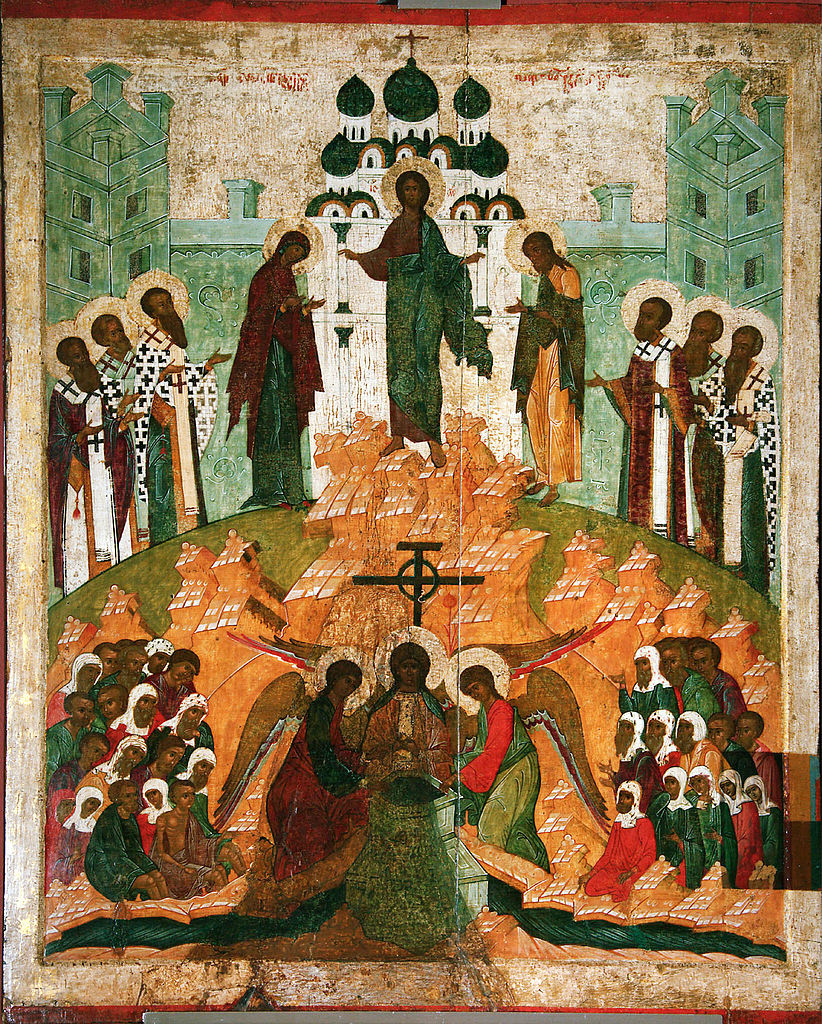 Again, by God’s mercy, we are entering the Dormition fast. This is the shortest and sweetest of the fasts. It begins with the blessing of honey, and then the blessing of the fruits. This fast is also the lightest, because the Mother of God takes care that the yoke of Christ would be light for us. She takes care for our bodies as well as our souls.
Again, by God’s mercy, we are entering the Dormition fast. This is the shortest and sweetest of the fasts. It begins with the blessing of honey, and then the blessing of the fruits. This fast is also the lightest, because the Mother of God takes care that the yoke of Christ would be light for us. She takes care for our bodies as well as our souls.
This fast begins with the blessing of honey, so that we would know not only of the sweetness that the Lord provides for our bodies, but also of spiritual sweetness; so that the sweetness that comes from the Cross of Christ would be revealed to us throughout the fast. Just as once in the Old Testament the wood was lowered into the bitter waters of Marah and they became sweet and pleasant, so let it be with all our lives—let our bitterness be changed to sweetness from our touching the Cross of Christ.
Questions for Self-Examination
8. August 2017 - 10:22
- How often are we consciously mindful of the Holy Spirit?
- Are we attentive to the Holy Spirit beyond the period celebrating Pentecost?
- Do we think consciously of the fruit of the Spirit?( Galatians 5:22-23)
- Do we live in ways to experience the fruit of the Spirit?
- Are our prayers focused with intent to experience God?
The Essence of Christianity
7. August 2017 - 16:04 Bishop Alexander (Mileant)
Bishop Alexander (Mileant)
"Be ye therefore perfect, even as your Father Which is in heaven is perfect" (Matt. (continue from last Sunday.)
Certainly, no one wishes to be condemned to hell. Everyone wants to enter the Kingdom of Heaven. It is crucial to understand, however, that the Kingdom of Heaven is not so much a place as a state. When the scribes asked when the Kingdom of Heaven would be revealed, Christ answered: "The kingdom of God cometh not with observation: neither shall they say, Lo here!, or Lo there! for, behold, the kingdom of God is within you" (Luke 17:20). Saying so, the Lord showed that salvation is intimately connected with a man’s interior state. Salvation is not simply a move from the present conditions of life to different and better conditions; it is something more profound and wonderful. As Scripture says, "If favour is shown to the wicked, he does not learn righteousness; in the land of uprightness he deals perversely and does not see the majesty of the Lord" (Isa. 26: 10, RSV). In other words, even when his exterior conditions improve, the wicked man continues to be envious, hateful, and quarrelsome, for he is tormented by a thirst for sensual pleasures; thus, he bears hell in himself. True joy, peace, and blessedness are inner states that come to a man as a result of a relationship with God, which the unrepentant refuse and do not share in. The righteous man, no matter where he is, will always have the delight of communion with God, bearing paradise within himself.
Did Enoch and Elijah (Elias) Ascend into Heaven?
4. August 2017 - 14:44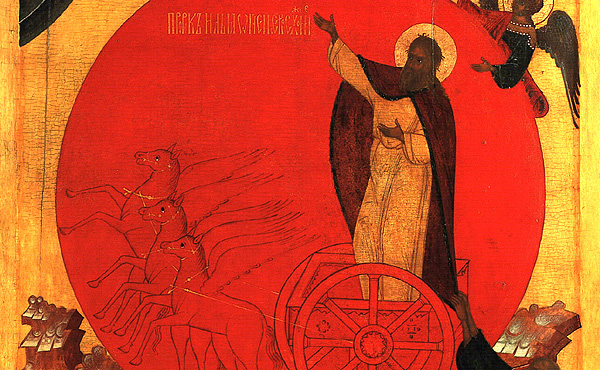 In His night conversation with Nicodemus, the Savior says, And no man hath ascended up to Heaven, but He that came down from Heaven, even the Son of man Which is in Heaven (Jn. 3:13). Many opponents of Christ see in this phrase a contradiction in the words of Scripture, for the Old Testament relates how Elijah ascended into Heaven and how God took Enoch to Himself. Let’s try to sort this issue out, using the Tradition of the fathers of the Church as the key to Scripture.
In His night conversation with Nicodemus, the Savior says, And no man hath ascended up to Heaven, but He that came down from Heaven, even the Son of man Which is in Heaven (Jn. 3:13). Many opponents of Christ see in this phrase a contradiction in the words of Scripture, for the Old Testament relates how Elijah ascended into Heaven and how God took Enoch to Himself. Let’s try to sort this issue out, using the Tradition of the fathers of the Church as the key to Scripture.
Interview and homily on Glorification of St. Mardarije
30. July 2017 - 18:59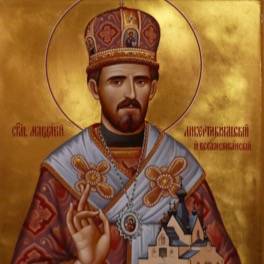 On July 14-16, 2017, The Serbian Orthodox Church celebrated the glorification of newly canonized St. Madarije of Libertyville. Learn about his life in an interview with Serbian Bishop Irenej of the Eastern American Diocese.
On July 14-16, 2017, The Serbian Orthodox Church celebrated the glorification of newly canonized St. Madarije of Libertyville. Learn about his life in an interview with Serbian Bishop Irenej of the Eastern American Diocese.
Then listen to the homily given at the Hierarchical Divine Liturgy by Metropolitan Amfilohije of Montenegro (Church of Serbia) where you will learn more about the life and dedication of this saint.
His Grace Bishop Irenej and John Maddex discuss the life and history of newly canonized St. Mardarije of Libertyville.


